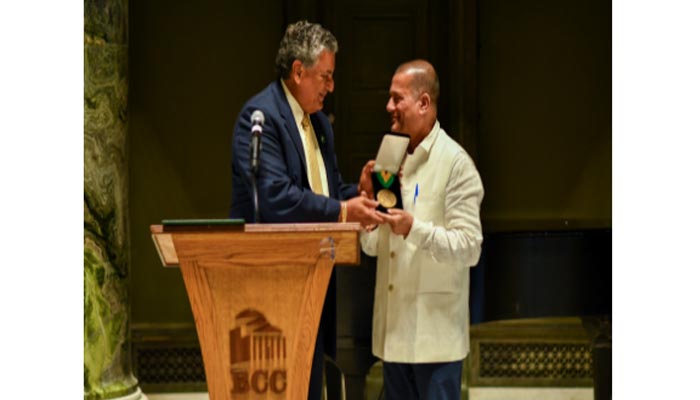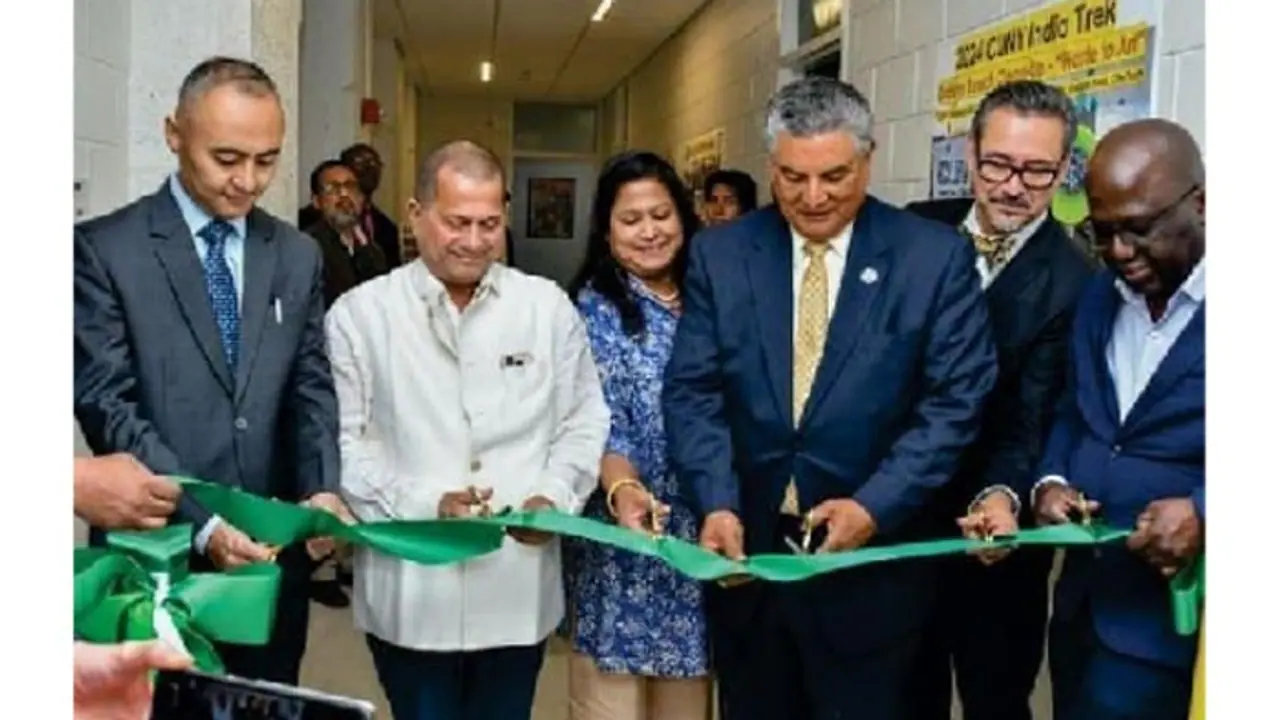The initiative was proposed by Dr. Milton Santiago, President of Bronx Community College under CUNY, after visiting KIIT and KISS in Bhubaneswar.
Mumbai 28th May, 2024 : In a rare and historic gesture, renowned Indian educationist and social reformer Dr. Achyuta Samanta has been honoured in the United States with a research institute named after him. The City University of New York (CUNY), one of the most respected public university systems in the U.S., inaugurated the Achyuta Samanta India Initiative CUNY Crest Institute (ASIICCI) at a special event in New York. Dr. Samanta also received the university’s highest honour—the Presidential Medal.

ASIICCI will focus on academic inquiry into Indian culture, heritage, and tribal communities, particularly in Odisha. This marks the first time a U.S.-based research institute has been named after an Indian citizen—an acknowledgment of Dr. Samanta’s mission and India’s growing influence in global education.
The initiative was proposed by Dr. Milton Santiago, President of Bronx Community College under CUNY, after visiting KIIT and KISS in Bhubaneswar. Deeply moved by what he witnessed, Dr. Santiago said, “When I saw the scale and heart of Dr. Samanta’s work, I knew the world needed to learn from it. This institute is our way of saying that real change is possible—when one person dares to dream big and work tirelessly for others.”
He added, “The Achyuta Samanta India Initiative will deepen American understanding of India’s tribal cultures and show how grassroots education can break poverty cycles.”
At the inauguration, Dr. Samanta expressed gratitude. “This recognition belongs not to me alone, but to the people of Odisha, to every tribal child who believed in education, and to the incredible KIIT-KISS family that turned vision into reality,” he said. “It’s more than a personal milestone—it’s a moment of pride for India. It shows that when education is driven by compassion, the world listens.”
Dr. Samanta’s journey is one of resilience. Born into poverty in rural Odisha, he lost his father early and was raised by his mother under difficult conditions. His belief in the power of education led him to found KIIT (Kalinga Institute of Industrial Technology) and KISS (Kalinga Institute of Social Sciences). Today, KIIT is a globally ranked university with over 30,000 students, and KISS is the world’s largest residential institute for tribal children, providing free education, food, and care.
Both institutions have earned global recognition for blending academics with culture, sports, and vocational training. Together, they represent a model of education focused not just on employment, but on empowerment.
According to official statements, ASIICCI will support research by American students on Odisha’s heritage and Dr. Samanta’s contributions to education and tribal upliftment. While program details are yet to be finalized, the initiative is expected to foster Indo-U.S. academic exchange.
A CUNY spokesperson said, “We are proud to house an institute that not only honours Dr. Samanta’s legacy but also expands our academic perspectives. This reflects our commitment to truly global education.”

CUNY, with over 300,000 students from 122 countries, has long championed equity and diversity. The addition of ASIICCI brings a new dimension to its academic vision, highlighting indigenous knowledge systems and inclusive development.
During the ceremony, Dr. Samanta was formally handed the Presidential Medal—CUNY’s highest honour—recognizing his global contributions to education and service. “This medal is not just a recognition of past work—it’s a reminder of the responsibility ahead,” he said. “If my journey from a small village to this global stage teaches us anything, it’s that education must be the answer to inequality.”
This honour also highlights India’s evolving global identity—not only through technology and diplomacy but through socially driven innovation. The naming of ASIICCI affirms that India’s education models are globally relevant.
From educating thousands of tribal children to building one of India’s most respected universities, Dr. Samanta’s life defies convention. His story shows that change begins not with privilege, but with purpose and persistence.
As applause echoed through the auditorium, it became clear this was more than a ceremony. It was a celebration of empathy, inclusion, and the power of education to rewrite destinies. The journey from a mud hut in rural Odisha to an academic centre in New York is now part of institutional history.
And yet, as Dr. Samanta reminded the audience, this isn’t an ending. “The Achyuta Samanta India Initiative,” he said, “marks a beginning—a platform for new ideas, global understanding, and a future where education truly knows no borders.”


